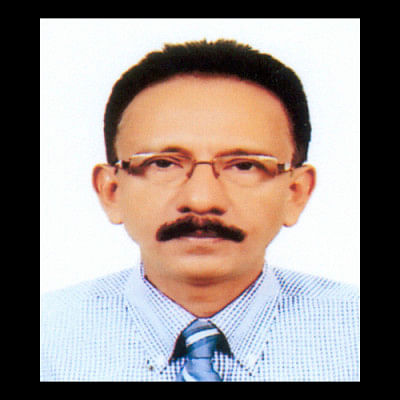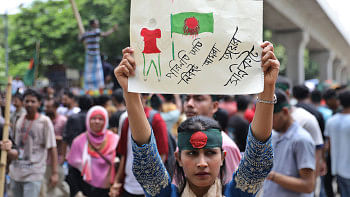“I considered all feedback to be constructive...”

Mohammad Wahid Hossain; Director General of the National Institute of Population Research and Training (NIPORT), Ministry of Health and Family Welfare and Additional Secretary to the Government of Bangladesh and Mr. Zahid Maleque MP, Honourable State Minister for the Ministry of Health and Family Welfare attended the Commission on Population and Development forum held at the UN Headquarters, New York City, USA from 13 to 17 April 2015. The theme of the session was “Realizing the future we want: integrating population issues into sustainable development, including the post-2015 development agenda”.
Mr. Wahid's revelations give us an insight into how far our country has come and what lies in the future. “We have come to know from the forum that an additional 2.1 billion babies will be born worldwide, with the majority being born in Africa and Asia. These births pose particular challenges for low-income countries, where rates of poverty and malnutrition are already high, levels of education low, health-care systems weak and rates of infant and child mortality are high”, he said.
Major issues discussed in the forum revolved around nutrition, gender, health, education along with other issues. Focus was placed on Sustainable Development Goals to be adopted later this year and how population and development related issues could be integrated. The changing age structure, particularly the ever growing challenge faced by an ageing population was at the centre of many discussions.
Emphasis was placed on the crucial need for achievement of gender equality and women's empowerment. Countries need to further promote girls' and women's education, ensure that girls and women have access to safe and effective means of family planning, as well as ensuring women's equal access to the labour market, social security and political processes.
The positive achievements made in Bangladesh were also mentioned during the forum. Especially in terms of food and nutrition but also in relation to health, education and the population. “Although, Bangladesh's food production is 350 million metric ton per year, proper nutrition is still a problem. When we present the statistical data of 15 years of MGD, we notice development in different arenas that is still unfortunately insufficient.” Mr. Wahid stated. He also expressed his regret on how time has been wasted. An integration of population issues into development at an early time, maybe in the 1980s and not only in the 1990s would have resulted in Bangladesh being in a much better place now. Present hurdles for the government are the shortage of midwives, trained nurses and skilled birth attendants. Women need to be encouraged to deliver their children at a health facility as current statistics show that 68% of births occur without a skilled birth attendant present.
Mr. Wahid went on to say that Bangladesh still needs adequate support and resources both from within the country and from development partners to achieve the targets set out in the new SDGs. The flow of funds should therefore not be reduced.
"Speakers praised us for our developments but we were generally criticised in the areas of population, food security, and social development.” Mr. Wahid says.
He plans on incorporating all the lessons learnt at the forum and will emphasize two or three major issues: ageing population, nutrition and food safety. In education sector quantity has been achieved but not quality. The same goes for health sector. Mr. Wahid feels that a lot has been achieved at the grass root level with the government's Community Health Care Approach. Plans to focus on the issue of nutrition are next in the Health Population and Nutrition Sector Development Program in association with other Ministries, such as Food Ministry and Social Welfare Ministry.
Interview by Sohel Rana

 For all latest news, follow The Daily Star's Google News channel.
For all latest news, follow The Daily Star's Google News channel. 



Comments